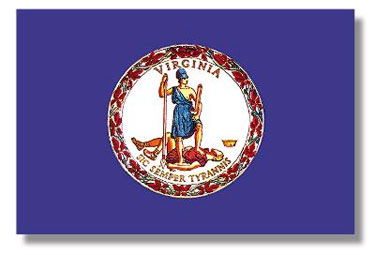Two Virginia executives go to prison for small-business set-aside fraud
An interesting article in Saturday’s Washington Post covered the criminal sentencing of two Virginia executives who defrauded the government. I find it interesting because, although the violations at issue are textbook false claims act violations, these cases were prosecuted criminally.
In a nutshell, the violations committed by these two (and various corporate entities under their control) were classic violations of what qui tam lawyers and others call “conditions of participation” for government contracts. Every government contract has “conditions of participation” in one form or another — on the facts of this case, the conditions of participation were, among other things, that the contracts at issue be awarded only to minority-owned companies.
And in the beginning, these contracts apparently did go to a minority-owned firm. Joseph Richards and David Lux started out running a company called “Company A” by the government and identified as Protective Strategies Inc. by WaPo. Initially, PSI was eligible to participate in these minority set-aside contracts because it had an African-American female listed as its CEO and President.
Then in 2003 she resigned and Messrs. Lux and Richards faced a problem. They were probably quite comfortable owning Company A all on their own and keeping the money themselves. But they needed a minority-owned firm in order to keep the government contracts they had in place. So what they did was form a company called “Company B” by the government and identified as Security Assistance Corporation by the Washington Post. Company B bid on and was awarded contracts set aside for minority-owned firms, but Company A still performed the work.
Once a person has crossed the line of criminal activity, other problematic acts typically follow, and that holds true here — for example,when government auditors came in 2008, for example, the men moved all of Company B’s files into a room at Company A’s Arlington office, and Lux drew up a fake document showing that Company B was renting space, court records show.
And that, ladies and gentlemen, is where the defendants crossed the line between sharp business practices and illegal behavior.
Like most fraud schemes, the violations of the law picked up speed over time. Also like most fraud schemes, the defendants were able to rationalize their own actions. The rationalizations offered are ones all false claims act/qui tam practitioners have heard before. They include the following:
“We were providing jobs to people,” Richards said. “The government was getting excellent service.”
And so what if it was? The quality of the service is just not relevant — they were never supposed to be performing work on the contracts to begin with.
I am not sure if the government has filed or will file its own false claims act case against these two executives. The government often files its own civil claims under the federal False Claims Act following a criminal plea bargain, depending on the specifics of the case. Alternatively, as here, the government can seek criminal restitution of the ill-gotten gains of the defendants. Messrs. Richards and Lux, who pled guilty on March 18, 2013, both agreed to forfeit millions of dollars in ill-gotten gains.
To be sure, the above violations of the law are just a few examples of how fraud can occur in government contracting, and especially how fraud can occur in set-aside programs for small businesses. There are literally dozens of variations on the above-themes, and a lawyer focusing on qui tam litigation under the federal False Claims Act or Virginia Fraud Against Taxpayers Act will see more violations in set-aside programs than he or she can count.
The question is, what differentiates a criminal case for violations of this nature, as opposed to a federal false claims act case? The answer often turns on the nature and quality of the evidence available, but that is a topic for another post.
